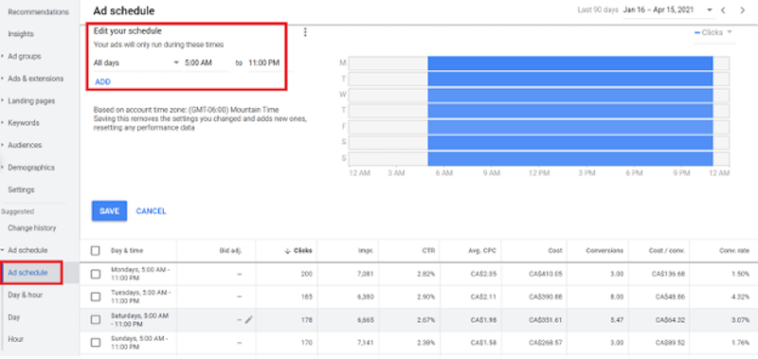Google Ads is a powerful online advertising platform that allows businesses to reach their target audience and drive conversions. However, without proper budget management, Google Ads spending can quickly spiral out of control, leading to inefficient use of resources and diminishing returns on investment. In this article, we will explore essential tips for effective budget management in Google Ads, ensuring that your advertising campaigns deliver optimal results without breaking the bank.
1. Set Clear Objectives

Before diving into your Google Ads budget, it’s crucial to establish clear objectives for your advertising campaigns. Are you looking to increase website traffic, generate leads, boost sales, or enhance brand awareness? Understanding your goals will help you allocate your budget more strategically and choose the right campaign types and targeting options to achieve the desired outcomes.
2. Conduct Thorough Keyword Research
Effective keyword research is the backbone of a successful Google Ads campaign. Identify relevant keywords that resonate with your target audience and have reasonable search volumes. High-intent keywords might be more competitive and expensive, so striking the right balance between popular and less competitive keywords is essential to optimize your budget.
3. Leverage Ad Extensions

Ad extensions are additional pieces of information that expand your ad and provide more value to potential customers. By utilizing ad extensions like site links, call extensions, location extensions, and callout extensions, you can improve your ad’s visibility and click-through rate without incurring extra costs. Ad extensions can also help improve ad rank and lower the cost per click.
4. Embrace Geographic Targeting
For businesses with a specific target audience, utilizing geographic targeting can be a game-changer. Focus your ads on locations where your products or services are in demand and exclude areas where they are not relevant. This way, you can allocate your budget more efficiently and avoid wasting resources on irrelevant clicks.
5. Schedule Ads Strategically

Not all hours of the day or days of the week are equal when it comes to user activity and engagement. Analyze your ad performance data to identify the most effective times to display your ads. By scheduling your ads strategically, you can concentrate your budget during peak periods when your target audience is most likely to interact with your ads. For expert assistance in maximizing your Google Ads performance and achieving optimal results, consider partnering with ASAseo.net.
6. Monitor and Optimize Regularly
Effective budget management requires constant monitoring and optimization. Keep a close eye on your ad performance metrics, such as click-through rates (CTR), conversion rates, and return on ad spend (ROAS). Use this data to identify underperforming campaigns and reallocate budgets to the best-performing ones. Regular optimization ensures that your budget is continually being optimized for maximum results.
Conclusion
Effective budget management is the cornerstone of a successful Google Ads strategy. By setting clear objectives, conducting thorough keyword research, leveraging ad extensions, embracing geographic targeting, scheduling ads strategically, monitoring and optimizing regularly, and implementing bid adjustments wisely, you can ensure that your Google Ads spending delivers the best possible results for your business. Remember, a well-managed budget not only maximizes your return on investment but also allows you to explore new opportunities and expand your online presence effectively.





